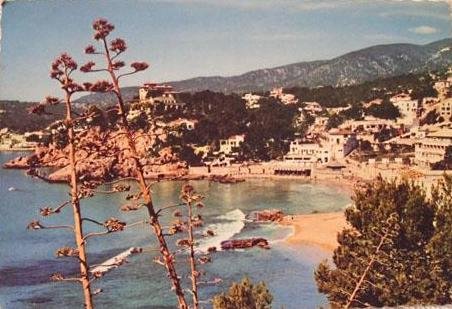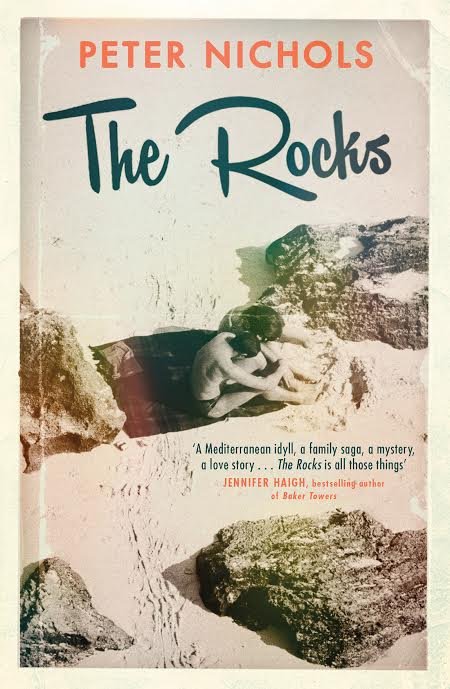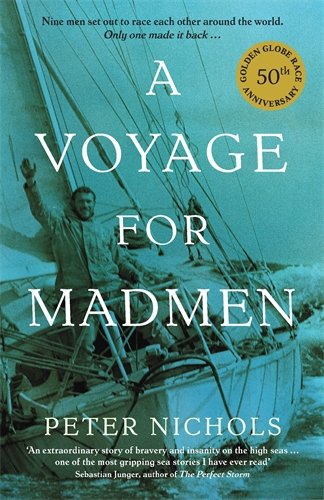Peter Nichols is the author of the bestselling novel The Rocks; the nonfiction bestsellers A Voyage for Madmen and Evolution's Captain; and several other books of fiction, nonfiction, and memoir. His novel Voyage to the North Star was nominated for the Dublin IMPAC Literary Award, and his journalism has been nominated for a Pushcart Prize. He has an MFA from Antioch University Los Angeles, and has taught creative writing there and at Georgetown University, Bowdoin College, and New York University in Paris. Before turning to writing full-time, he held a 100-ton USCG Ocean Operator’s license and was a professional yacht delivery captain for ten years. He has also worked in advertising in London, as a screenwriter in Los Angeles, a shepherd in Wales, and has sailed alone in a small boat across the Atlantic. He is a member of The Explorers Club of New York. His latest book is Granite Harbor.
Tell us about what you love about Maine and how you decided to make it your home?
Although I’m American, I was brought up in England and Europe, and I prefer living in Europe, but I currently live in the United States to be close to my son. I like Maine and have chosen to live here because it seems to me a throwback version of the US, not overrun with strip malls and box stores and the rest of the visual crud of the USA. It’s less spoiled; the modern world seems farther away. Where I live, in Camden on the coast of Maine, it’s postcard pretty, has a still working seafaring industry, an aquaculture industry that is thriving because of the pressures on wild seafood, a farm-to-table culinary scene, all of which is very authentic, self-sustaining, yet feels like an earlier time. I like Maine also because it’s comparatively undeveloped, with large unspoiled natural areas—it’s kind of the Auvergne of the USA—a lot of hiking, sailing, kayaking—which I love to do—available here. I also have a motorcycle, and Maine is a paradise of small roads weaving through beautiful country, thought the winter is long here so the riding season is limited.
The town you describe in Granite Harbor is vividly detailed. Is it inspired by an actual town?
My book, Granite Harbor, is a serial killer thriller set in a small town like Camden. It’s largely about families and the difficult relationships between parents and children, which are difficult anyway, and the community of a small town is also like a family. So the danger and fear of a serial killer is greater in a small community, and family pressures are under greater pressure when a killer is on the loose. And, for fictional purposes, or for this book anyway, I can know a small community and how it works and the people in it better than a city.
Tell us about some places you like taking visitors to Maine.
I like taking visitors to Acadia National Park, on Mount Desert Island, a superbly unspoiled and beautiful area of high granite hills, woods, hiking trails, lakes and islands; great swimming, sailing, biking, hiking. But these things are also found everywhere in Maine, so where I take visitors depends on how long they’re staying. Because of all these things, Maine is a wonderful place to set a story.
the pretty town where I live in the coast of Maine, Camden—aka, “Granite Harbor"
You’ve lived in many countries. Tell us about some places you’ve been inspired by during your travels.
Everywhere I’ve lived, and my love of those places, have also inspired my writing. When I was young, my family spent summers on Mallorca, and my last published book, the novel The Rocks, is set on Mallorca, starting in the present, with a reverse chronology, the story going backwards in time over a period of 60 years. Again, the story of a small community, but a mainstream novel, not a genre thriller. I’ve also lived on small boats at sea for long periods, and that inspired my first five books: a memoir, Sea Change, my first novel, Voyage to the North Star, and two books of historical nonfiction, A Voyage for Madmen, and Oil and Ice. I’ve lived in Paris for long periods, years at a time, but as yet have no Paris novel running around in my brain.
Tell us about your path to becoming a writer.
I became a writer in part because I was (and remain) a chronic daydreamer and did very poorly in school. I also had and have ADD or ADHD. But I was always a reader, and when I lived aboard boats there was no TV or media—apart from radio—so I read all the time. This was almost a perfect apprenticeship for being a solitary writer.
How is Granite Harbor a departure from themes and genres you’ve explored in previous books?
Granite Harbor is a departure from my previous books in that it’s (a) not about the sea in any way (despite the ‘Harbor’ in the title, which is just part of the name of a town), and (b) it’s a thriller, a genre novel. 30 years ago, I was researching the colonial period of the United States for another book and I learned that toads were used in apothecary medicines. Somehow, an image came to me of a toad that suggested a murder, but I didn’t know what to do with it, or the reason for the murder—until now. I also wanted to explore the state of siege that overtakes a small community of families and children under the threat of a serial killer. I believe genre fiction offers the same possibilities to explore character, manners, and society as mainstream fiction, but it’s a lot more fun for both writer and reader. I’m presently working on another genre novel, this one a mystery.
What is the inspiration for the Settlement?
Years ago, I visited Plimoth Plantation, the wonderfully recreated original pilgrim settlement at Plymouth, Massachusetts, and spoke with the people who re-enacted the lives of the pilgrims there, wore pilgrim clothes, interacted with tourist-visitors, and made the place seem real. I was fascinated by the historical ghost that lived beneath the surface of the modern town. I originally imagined my story in Plymouth, MA, but then I moved to Maine.
Detective Brangwen is an intriguing character. He’s a single father, and there are two other single parents featured prominently: Brangwen’s ex-wife Morgana and ex-girlfriend Isabel. Their relationships to their children are sometimes fraught – but also key to solving the crimes. Why did you choose single parenthood as one of their defining characteristics? And why did you make the parent-child relationship so vital to this story?
I could not have written this book had I not been a parent. This is what I know: the difficult relationships parents—especially single parents, and I know many—have with their children. The speed at which children evolve beyond the frame of reference of their parents, beyond the control of their parents—particularly the control that single parents, acting alone, try to exert over their children out of fear, anxiety, hope—and the speed at which children become their own people. This is what I have learned most searingly over the last 20 years. This parent-child dynamic seemed to me a perfect, already fraught situation that could be further strained, tested, given a horrifying aspect, by the threat of a serial killer, someone who is probably known to both the children and the parents, at large in a small community. If we love, we fear for our loved ones. It’s a natural hook.
Brangwen is hunting down a ritualistic serial killer, in the vein of Buffalo Bill in Thomas Harris’s The Silence of the Lambs or Dexter in Jeff Lindsay’s Darkly Dreaming Dexter. What was your process for getting inside the mind of this unique killer who targets teens? And was this process complicated by the fact that you're the father of a teenage son?
The moment my son was born, I feared for his life and safety. Maybe this happens to all parents. And I’m a novelist so I write about my life and my experience and my fears. I imagine dark scenarios. I can imagine someone coming for my boy, who is the love of my life. I’ve had dreams about that. But, rather than posit a loony psychopath and simply describing his terrible crimes—I find such villains uninteresting—I wanted to create a very human, even sympathetic character. I believe all fictional characters, however nasty or reprehensible, should be understandable and, to some extent, sympathetic. I wanted to show someone who had functional personal relationships, who was a part of a community. I went into my killer’s history from birth, and I genuinely felt for him. And I became immersed and fascinated in exploring his childhood and the acquisition of the tools he used as a killer. I really enjoyed writing these sections—and I hoped and believed that if it felt real, and even sympathetic, to me, that would convey to a reader.
Landscapes and places clearly have clearly inspired many of your books, as well as culture and history. What museums or cultural venues do you frequent? And what makes them great?
I love most museums—they are gold for a writer. I’ve written historical fiction and nonfiction, and in museums the past becomes real, you can see it, imagine it vividly. There are small museums in Maine—I like the Maine Granite Industry Historical Society Museum, and am presently using information from there for a new novel set in Maine. Some others that I love elsewhere and that have inspired me are the Smithsonian Museums in Washington DC, the Victoria and Albert in London, Natural History Museums in London and New York, the National Archeological Museum in Athens, the Vatican Museum, the New Bedford Whaling Museum, etc, etc. Same for the great art galleries: the Metropolitan in New York, the Louvre and the Musée d’Orsay in Paris, galleries in Rome; the Farnsworth Museum in Rockland, Maine, very close to Camden; galleries anywhere; the life seen in paintings. These are portals through time, and set the imagination whirring.
What are some historic places you visit that reconnect you with a sense of history?
Plimoth Plantation in MA, as mentioned above. And Maine and its coast have inspired me to travel back in time in thought and writing.
What are some places you can find only in Maine?
L.L.Bean, founded in 1912, the camping, hunting, outdoor outfitting and clothing megastore that is open 24 hours a day, 365 days a year. Its gear also available through its catalogs. It is world famous, and everyone loves it.
You can probably find much of what is here elsewhere, but what I see more clearly in Maine than elsewhere is the glimpse of an earlier America; a working fishery that looks unchanged from the early 20th century. The rugged granite rock and fir-treed Maine coastline is fantastic and famous, and has inspired painters and writers for centuries. It resembles some of the coasts of Scandinavia and Brittany, and remains amazingly unspoiled.
Some places that are great for families?
Anywhere on the coast of Maine, and inland, is great for families. Maine is also called ‘Vacationland’ and has long been a summer mecca for families, for summer camps, for hunting, camping, and fishing.
Some places that are great for appreciating nature?
Everywhere in Maine.
Some places you like to go to be alone?
Any of the hundreds of hiking trails here. Or on a small boat along the coast.
Tell us about notable environmental, civic initiatives, and/or NGO projects where Maine is leading the way for a better tomorrow.
Aquaculture is thriving in Maine, driven as everywhere by the pressure on natural resources, existing fish stocks, pollution, etc. Maine’s pristine waters and coastline are perfect for fish, oyster, scallop, seaweed farming, and these businesses are expanding in tandem with an equally thriving organic fruit and vegetable agriculture.



















































































